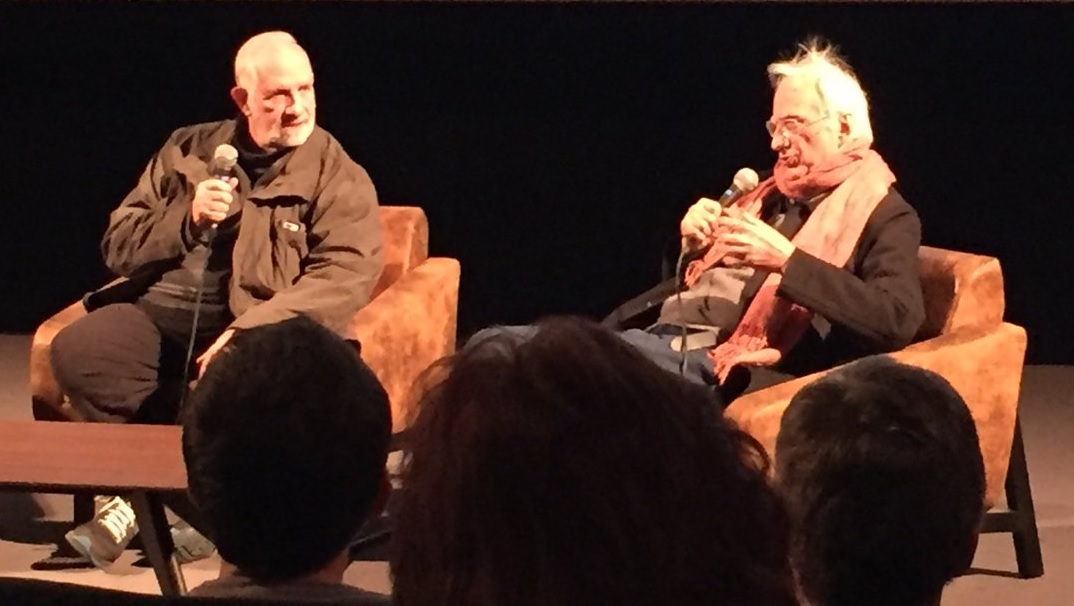"THE RESPONSIVE I" - BEAUTIFULLY EDITED ILLUMINATION THAT DELVES DEEP
 Hello and welcome to the unofficial Brian De Palma website. Here is the latest news: |
|---|
E-mail
Geoffsongs@aol.com
-------------
Recent Headlines
a la Mod:
Listen to
Donaggio's full score
for Domino online
De Palma/Lehman
rapport at work
in Snakes
De Palma/Lehman
next novel is Terry
De Palma developing
Catch And Kill,
"a horror movie
based on real things
that have happened
in the news"
Supercut video
of De Palma's films
edited by Carl Rodrigue
Washington Post
review of Keesey book
-------------
Exclusive Passion
Interviews:
Brian De Palma
Karoline Herfurth
Leila Rozario
------------
------------
| « | April 2019 | » | ||||
| S | M | T | W | T | F | S |
| 1 | 2 | 3 | 4 | 5 | 6 | |
| 7 | 8 | 9 | 10 | 11 | 12 | 13 |
| 14 | 15 | 16 | 17 | 18 | 19 | 20 |
| 21 | 22 | 23 | 24 | 25 | 26 | 27 |
| 28 | 29 | 30 | ||||
De Palma interviewed
in Paris 2002
De Palma discusses
The Black Dahlia 2006

Enthusiasms...
Alfred Hitchcock
The Master Of Suspense
Sergio Leone
and the Infield
Fly Rule
The Filmmaker Who
Came In From The Cold
Jim Emerson on
Greetings & Hi, Mom!
Scarface: Make Way
For The Bad Guy
Deborah Shelton
Official Web Site
Welcome to the
Offices of Death Records
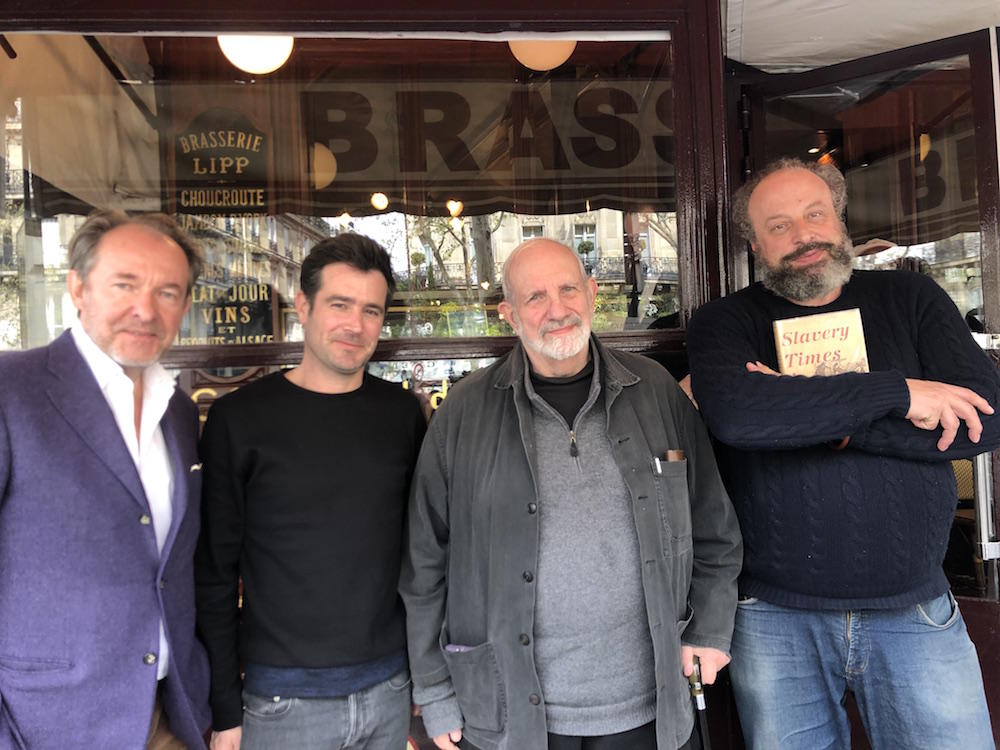
De Palma: Ah, the French Village.Lehman: We almost made it through an interview without mentioning it.
De Palma: A friend of Susan's turned us on to A French Village. And we were totally engrossed in it. And when we were on our last book tour-- and if we had sold a few more books we wouldn't be back here [laughter]-- we talked about how much we loved A French Village. And the producer and show runner contacted me with an idea of how to do A French Village in America. And we are meeting at a restaurant, dreaming it up.
Lehman: Forgive me-- he left out a key thing. It's about the Civil War, but the same sort of template as A French Village.
De Palma: So much to do, so little time.
In the picture above at far left is Jean-François Boyer, president of Tetra Media Fiction, which produced A French Village and is also associated with the new project. Langlais mentions that Newton 1861 "will only see the light of day on condition of finding a broadcaster."
Langlais continues, "A touching historical chronicle full of twists, reflecting on the period of occupation [within the lives] of women and men, A French Village has developed its original story through seven seasons, stripped of all manichéisme. The challenge of this American version will be to adapt its dramatic tensions as well as its ethical and political questions to the local context, to slavery and to a civil war constituting the American nation."
And it looks like De Palma and Krivine plan to get working on development right away: the book Krivine is holding in the picture above is Slavery Times in Kentucky by J. Winston Coleman.
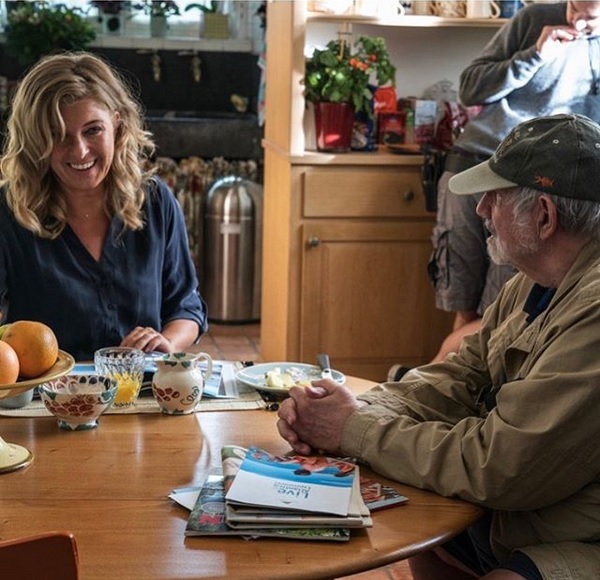
A day later, Jay Pothof, who has a small role as the son of Eriq Ebouaney's character in Domino, posted to his Instagram page a cropped frame from the movie's trailer (the full shot is below), with the message, "So so Proud...This is a still from the movie Domino, to be released very soon in the US. Director is Brian De Palma (legendary). I had the huge honor to have a role in this film. We went to Copenhagen for the taping. You can see me in the still in the upper right corner. Was a very intense scene."
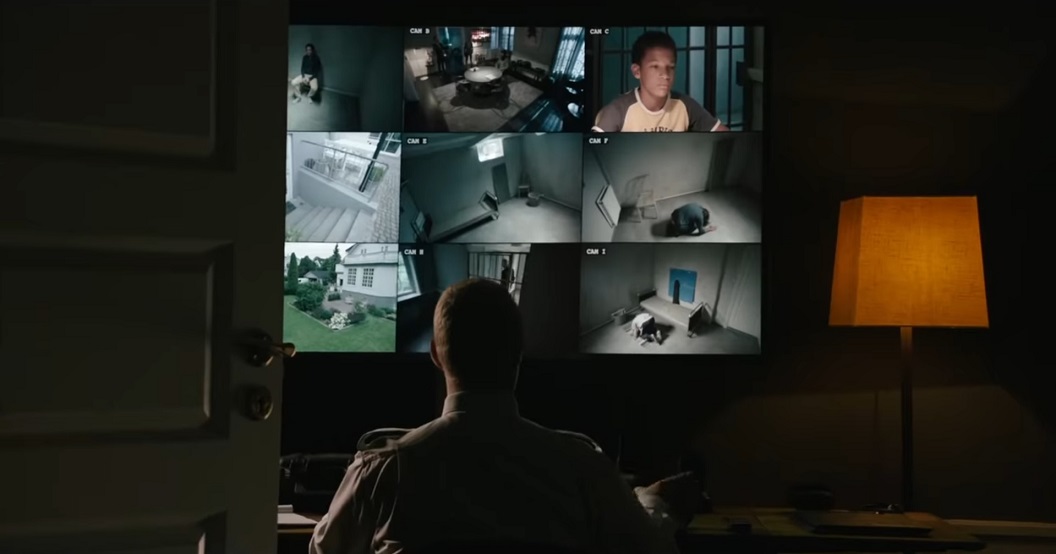
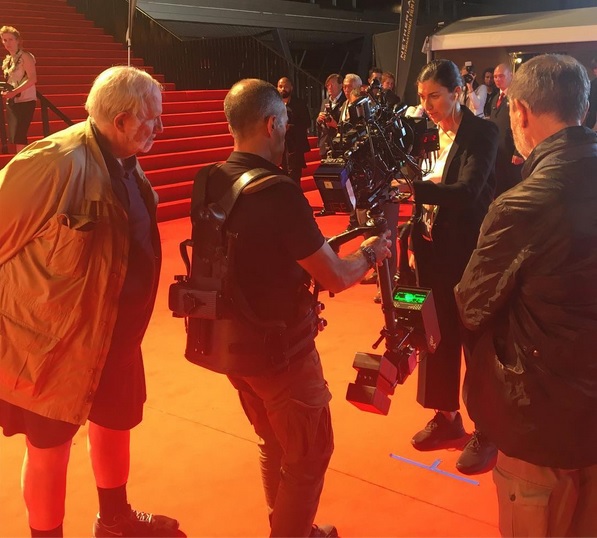
"I think people often don't get me," Gholamalizad says about acting. "I am very gentle, but I am always asked for extreme roles. In the new Swedish series Stockholm Requiem I play an Israeli-Palestinian double agent whose child is murdered. I had to play a very emotional scene in Hebrew, in the middle of the night at minus ten degrees. In Brian De Palma's movie Domino, I play a suicide bomber. That is actually the film in which Mourade Zeguendi did not, on principle, want to play. I also struggled with it myself. I have no problem playing a terrorist, such roles are sometimes more interesting than good women roles. But then the story must be good. If it is only told to confirm cliches and to contribute to the heroic acts of a white protagonist, then I ask myself enormous questions. I am not afraid to play people with a color or other origin, but I want those roles to be three-dimensional and flesh and blood."
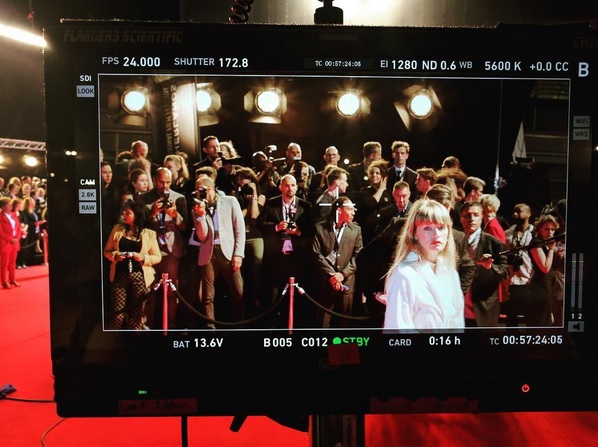
Do I hear that right, Brian De Palma? The man behind Mission: Impossible, Scarface and The Untouchables? How did you manage that?
HENRARD: “He needed an actress for a certain scene in his latest movie Domino, but he couldn't find the ideal girl. Suddenly I received a phone call a few weeks ago: 'Ella-June, we're looking for an actress and you're the perfect person. It's for a Brian De Palma movie.' At first I had to reject the offer because I was too busy, but because they insisted, I accepted it anyway. I swallowed. I was going to start filming with the Brian De Palma. I was already stressed when I thought about it. (laughs) But it was just a small roll, though. We did two nights of filming."Has he really directed you? Or did his assistant do that?
HENRARD: “I did not expect it either, but it was De Palma himself who gave me directions on the set. After a few bloody shots I had to be brushed up. Suddenly someone from the production came to me. 'Would you like to come to Brian's tent?' she asked. I thought, 'Oh no, he thinks I'm bad.' I was also quite nervous. And nice and uncomfortable, dressed in a giant dress with a trail. So I went to his tent with a little heart. 'Hi Brian!' I squeaked. 'Come in, darling. I just want to tell you that you're doing a very good job. Thank you,' he said. When I came back out of his tent again, I thought to myself, 'Okay, little ego-boost, yes!' (laughs) It was really just very nice."Makes it a lot more difficult, looking up at someone like that and consequently being a lot more nervous...
HENRARD: “Absolutely. And I know that nerves can hinder me very much. I am a fairly easy going type by nature, but at such moments the stress takes over. You hear, 'Ella wanted on the set.' And then he explains this and that. 'Oh, fuck, what did he say again?' I begin to stress. Anyway, it was an action scene, so there was probably a lot of adrenaline flowing through my body. As a result, the stress was not so obvious. But it was really an exciting experience."
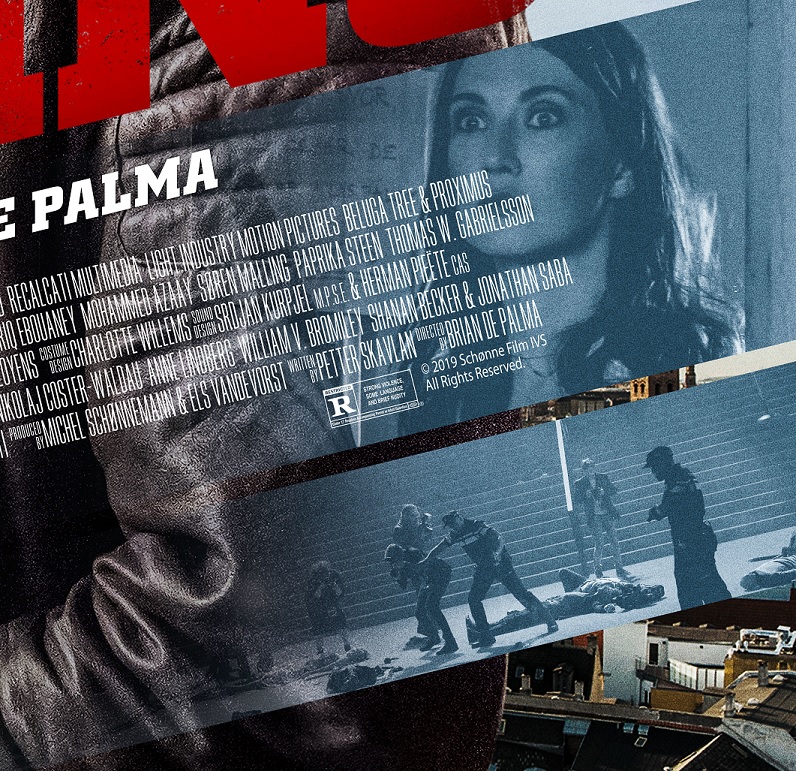 ...
...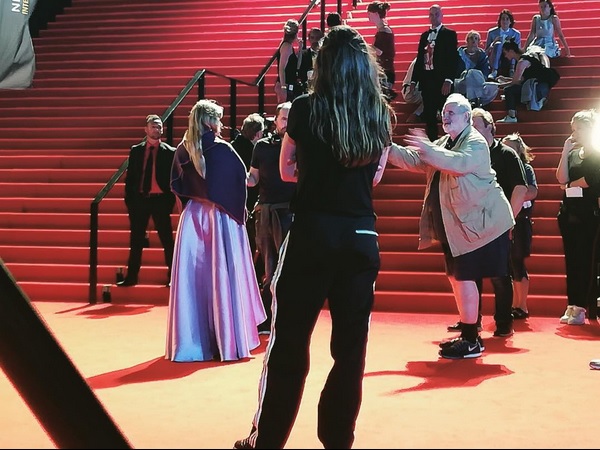
 Entertainment Tonight has an exclusive today with the first trailer for Brian De Palma's Domino. Later, a better version was posted on YouTube (embedded below). Thanks to bakiniz for tweeting the poster, and to BrianDePalmaArchives for noting that the credits at the end of the trailer reveal that longtime De Palma collaborator Bill Pankow is the editor on Domino.
Entertainment Tonight has an exclusive today with the first trailer for Brian De Palma's Domino. Later, a better version was posted on YouTube (embedded below). Thanks to bakiniz for tweeting the poster, and to BrianDePalmaArchives for noting that the credits at the end of the trailer reveal that longtime De Palma collaborator Bill Pankow is the editor on Domino.
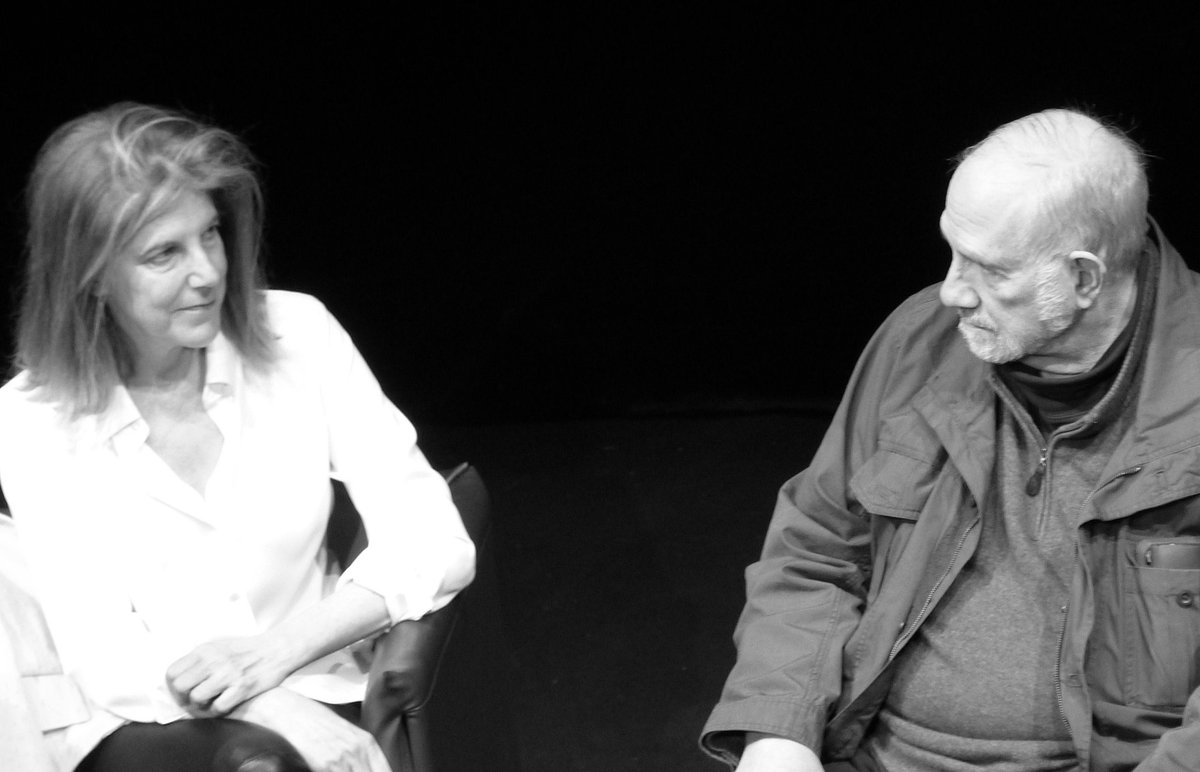
Some intriguing comments and mentions: Lehman at one point mentions that their American publisher had wanted them to change the opening sentences of the novel... can we look forward to an English-language version of Are Snakes Necessary? They also mention two more possible novels in the works. Here's a partial transcript of the discussion, limited by my speculations about the questions that were asked. Please note that De Palma often leaps into sarcasm in a single bound, so imagine a sarcasm font in several places (usually followed by laughter on stage or from the audience)...
[Where did you get the idea for Are Snakes Necessary?]De Palma: Where did I get the idea? Well, let me see...from the Edwards campaign, where he had a young lady taking videos of him that were supposed to show the truth of a campaign... of a campaigner on the campaign trail. And when I saw the video-- they were called webisodes-- and she was posting them on the web, and you could see by the way he was addressing the camera, i.e. her, he was, uhh, talking about the campaign, talking about himself, and looking at her in a very...snake-like way. And of course, a relationship developed, and the campaign manager's going, "We gotta get rid of this girl!" Which essentially, that's where, in the Edwards campaign, he not only had an affair with her, he knocked her up. And then, can you believe, he said his married assistant did it! You cannot make this stuff up.
[The Chandra Levy murder is brought up...]
De Palma: Oh yeah, that's another case that fascinated me. Again, another politician having an affair with one of his attractive young assistants, and one day, she disappears. And they go to the, I think it was a Congressman: "Do you know where she might be?" And he says, "No, she's only an assistant, I know nothing..." But of course, it all came out, he was having an affair with her, and then everybody thought he had something to do with getting rid of her. We have so many great political stories in America.
[Shift to talking about current administration...]
De Palma: There's so much material out there. How about paying off a porn star?
Lehman: The best-running serial TV in America right now, and arguably, the best comedy show, is the news. We sit down in front of the news every night. You can tell me whether you think it's comedy or not, but it's very engaging. I think the answer to your question is, Trump has no humor whatsoever, and yet, he has all the power. So, we need humor to survive, clearly, but... And this administration, of course, has been a great gift to late night comedy and humorists.
De Palma: Don't say too much against him. He is going to tweet against you. And what's he going to call you?
Lehman: A snake! [De Palma laughs]
De Palma: Well, he hasn't gotten us into any bad wars yet. And I grew up in an era where we were in crazy places for reasons one could never figure out. You know, it's sort of like Brexit. What is it? And why must we get out of it? [De Palma laughs] So, yeah, I went and made many movies about how terrible I thought our invasions of these other countries were. Because all the reasons they gave made no sense whatsoever. And of course, after Vietnam, we invade Iraq. There's a good idea, don't you think? What a great job we did there. But Trump is basically an isolationist. And he just wants to stay there and make all the money, and just, don't get into too much trouble. Except for all those Mexicans coming across the border!
[A question about how the pair worked together in writing the book...]
Lehman: We did not share the roles. We really did it together. Part of the fun was writing to each other. And in a way, that speaks to the parentheses that you mentioned, because I would be writing almost as if a letter, and he would write back...
[Then, a followup comment having something to do, perhaps, with the humor in the book resembling the authors' own back-and-forth banter?]
Lehman: Yeah, I think that's fair. We were trying to crack each other up.
[The moderator, noting something about a punchline and the way De Palma tells stories, reads the first part of the novel: "Barton Brock is having a bad day. A very bad day. Contrary to what his doctor had promised him, vasectomy is not a painless operation."] [laughter in the audience]
De Palma: That was based on a friend. [more laughter]
Lehman: Please tell the audience thank you for laughing, because our American publisher wanted to change the first sentence.
De Palma talks about how a career in film has valleys, and that in one of those periods in which the phone is not ringing because your last picture played "for fifteen seconds," they decided to write a book.
But then Lehman says, "Trust the tale not the teller? That's completely false. The book started because the phone was ringing constantly. And it was a producer who had notes on something Brian was working on. And I saw his jaw getting more and more clenched every day. And it seemed like a very good thing to do would be to stop taking those phone calls and begin something new."
[Male/female point-of-view question?...]
Lehman: Well, that was one thing that really interested me about this book. Brian has a very muscular sensibility, I think. And as you say, there are a lot of references that a man probably wouldn't make. So I think one way you could read the book, if you felt like it, is, what happens to a very masculine imagination when it comes into contact with the more feminine element.
De Palma: I have no idea what she's talking about. [laughter]
Lehman: There's a lot in this book that you would not have written yourself if left to your own devices. I think our readers would agree.
De Palma: I just saw two people walk out. [laughter]
Lehman: It's because of what you said.
[A question about differences between writing for film and writing for a novel...?]
De Palma: Well, in a book you can have even more kind of complicated twists of the plot, and this book has many surprises in the way the story is told. In a movie, like a couple I can remember from my distant past... Raising Cain comes to mind... in which their twists are so... twisted, you can lose the audience, because you're looking at it, and it's going by, badap badap badap badap. In a book, you can say, well, wait a minute, did she put that over there, or did she come and... oh, I'll go back a few pages and... And what's interesting about Raising Cain, when I initially made the movie, I felt it was so complicated that I reversed the telling of the stories. Because I thought it would be an easier way to follow the story. And some filmmaker saw the movie and said, wait a minute. He looked at the original script and said, wait a minute, this is completely reversed in the script. So he put it back the way it was initially written. And it really worked! And I said, that's a very good idea that I had originally. I thought it was too confusing, but, it works better the way you put it back originally. And when you leave the auditorium today, we're selling the revised version of Raising Cain.
Lehman: Okay, that's very interesting, but it didn't speak to the question at all. [laughter]
De Palma: Maybe you would like to answer it.
Lehman: All right. Obsessions have their own life, and they haunt the imagination. So Brian as a filmmaker, and Brian as a writer, is haunted by the same thing. So it's not the case that he or we are saying, Vertigo, where do we put that into the plot. As you know if you're the parent of more than one children, people are who they are from the very beginning, and you will see in our second and our third book, additional obsessions, perhaps stemming from me, avenging women, who knows?
De Palma: What? Second and third book?!? [laughter]
[Host says to Brian that he has a brother named Barton.]
De Palma: That's correct.
[She asks if there is a connection to the character in the novel.]
De Palma: It has nothing to do with my brother, he's a lovely person. And don't you try to say anything negative about him.
[After some discussion about the autobiographical aspects of De Palma's films...]
Lehman: I would like to add, on the autobiographical front: I put a lot of the things my ex-boyfriend said in the mouths of the creepiest characters in the novel. And I really recommend that.
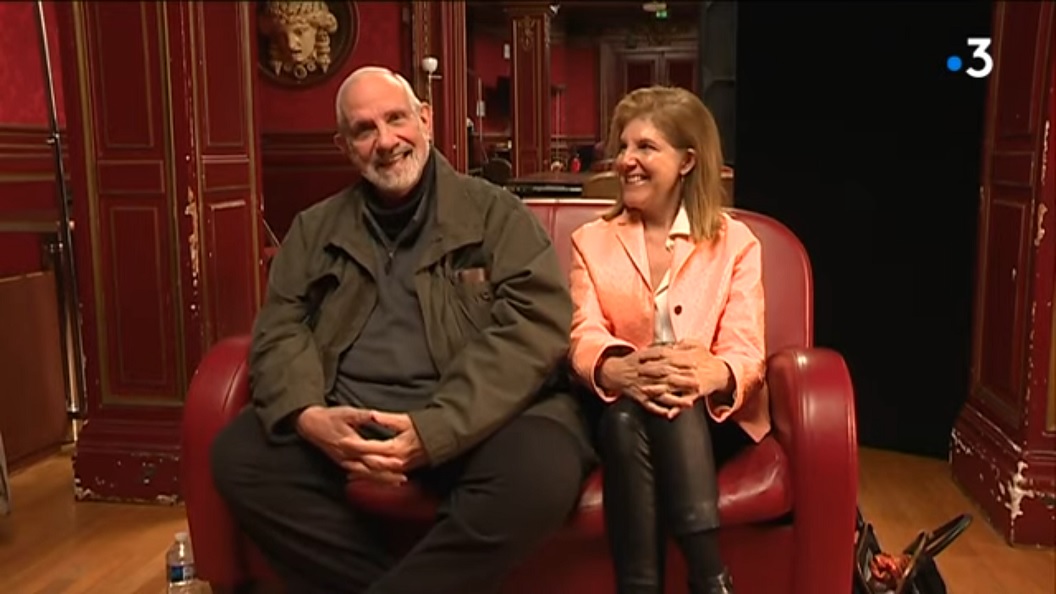
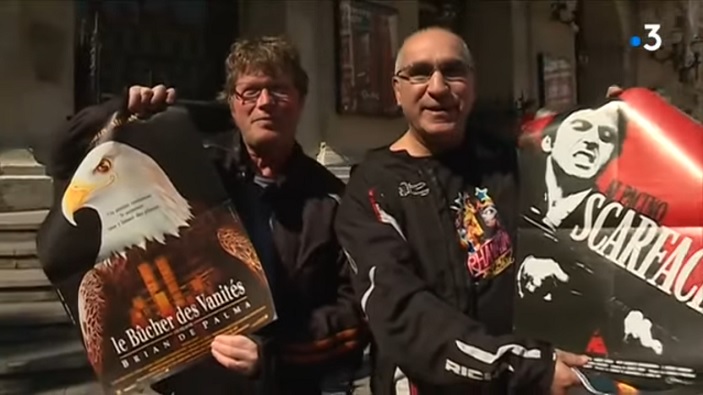

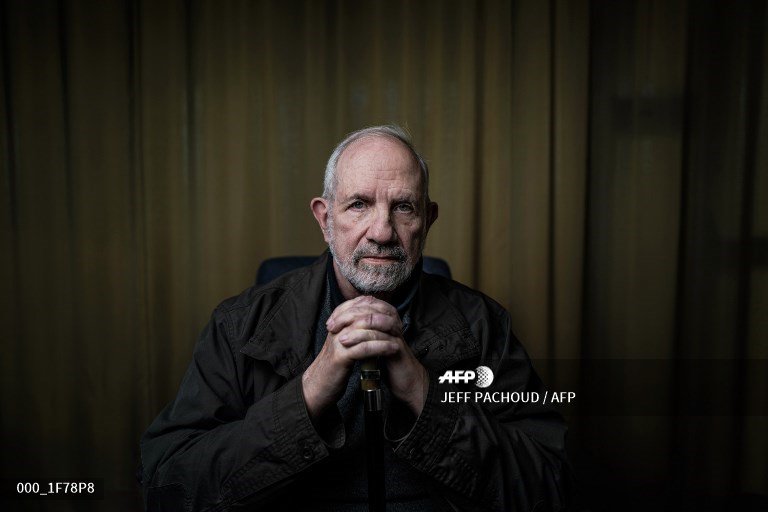
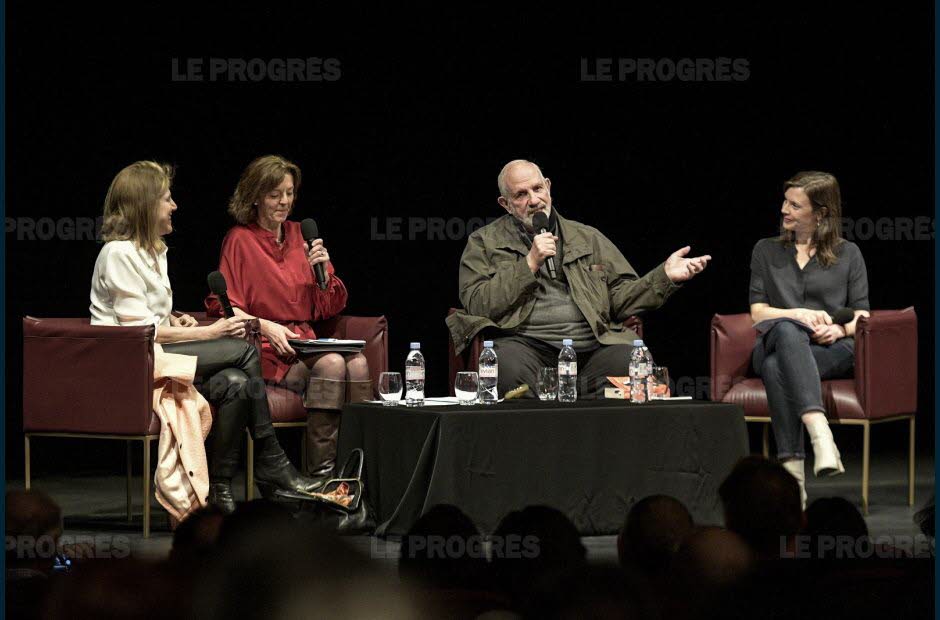
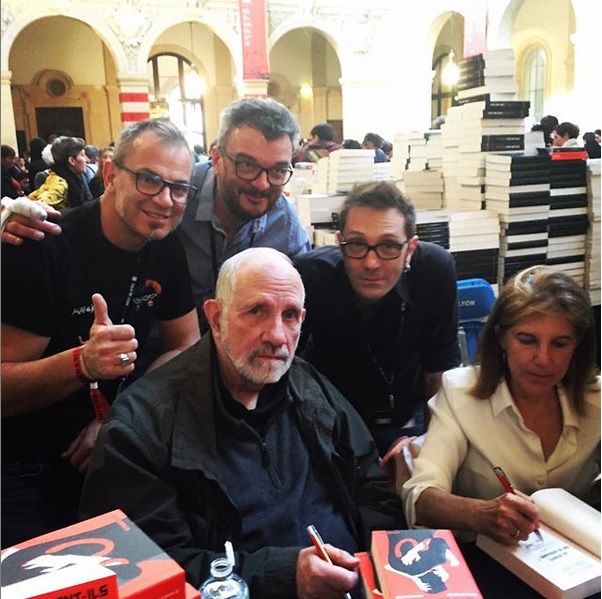 Afterward, De Palma and Lehman met fans while signing copies of the novel. Later in the evening, De Palma was introduced at the Lumière Institute by Lyon-born filmmaker Bertrand Tavernier, whose 1995 film L'Appat casts a critical eye on De Palma's Scarface as a representation of the Americanization of French cinema and culture. The film's teenage characters watch Scarface and other American films, quoting lines from them and displaying ideas about the world that they take from American culture. Tonight, introducing De Palma at Lumière, Tavernier said, "When you live as a couple, Brian De Palma is surely the topic that feeds the most discussions! Everyone has their favorites, in a career so rich."
Afterward, De Palma and Lehman met fans while signing copies of the novel. Later in the evening, De Palma was introduced at the Lumière Institute by Lyon-born filmmaker Bertrand Tavernier, whose 1995 film L'Appat casts a critical eye on De Palma's Scarface as a representation of the Americanization of French cinema and culture. The film's teenage characters watch Scarface and other American films, quoting lines from them and displaying ideas about the world that they take from American culture. Tonight, introducing De Palma at Lumière, Tavernier said, "When you live as a couple, Brian De Palma is surely the topic that feeds the most discussions! Everyone has their favorites, in a career so rich."Thierry Frémaux, who has been with the Lumière Institute for decades, and is also Artistic Director and General Delegate for the Cannes Film Festival, opened with a tribute to Agnès Varda, who died earlier today. Frémaux was then joined by Tavernier to welcome De Palma to the stage. (Recall that last June, De Palma expressed his anger to Les Inrockuptibles' Jacky Goldberg about an unfinished version of Domino having been screened for consideration for Cannes 2018. "I'm furious," De Palma exclaimed at the time, "and you can print that! The film was screened without post-synchronization, non-mixed, non-graded, and without my consent, to Thierry Frémaux, who must have asked himself 'What the heck is this?' The producers eventually found the money and we finished it last week. I presume it'll soon be shown in some festival. But seriously, what a pain!")
One final note before the rest of the pictures below: at some point of the day in between these two events, De Palma and Lehman were interviewed by TV channel France 3 Rhône-Alpes. A large picture from the latter is at the end of this post. But first, pics of Brian De Palma on stage with Bertrand Tavernier and Thierry Frémaux...
